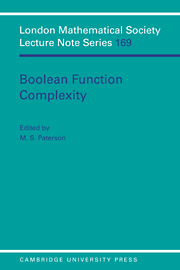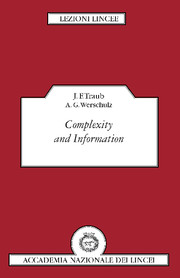Boolean Function Complexity
By considering the size of the logical network needed to perform a given computational task, the intrinsic difficulty of that task can be examined. Boolean function complexity, the combinatorial study of such networks, is a subject that started back in the 1950s and has today become one of the most challenging and vigorous areas of theoretical computer science. The papers in this book stem from the London Mathematical Society Symposium on Boolean Function Complexity held at Durham University in July 1990. The range of topics covered will be of interest to the newcomer to the field as well as the expert, and overall the papers are representative of the research presented at the Symposium. Anyone with an interest in Boolean Function complexity will find that this book is a necessary purchase.
- Will appeal to computer scientists as well as mathematicians
- Carefully edited - all papers have been finely tuned
- Long awaited
Product details
November 1992Paperback
9780521408264
212 pages
227 × 151 × 11 mm
0.315kg
Available
Table of Contents
- 1. Relationships between monotone and non-monotone network complexity
- 2. On read-once Boolean functions
- 3. Boolean function complexity: a lattice-theoretic perspective
- 4. Monotone complexity
- 5. On submodular complexity measures
- 6. Why is Boolean complexity so difficult?
- 7. The multiplicative complexity of Boolean quadratic forms
- 8. Some problems involving Razborov–Smolensky polynomials
- 9. Symmetry functions in AC0
- 10. Boolean complexity and probabilistic constructions
- 11. Networks computing Boolean functions for multiple input values
- 12. Optimal carry save networks.







